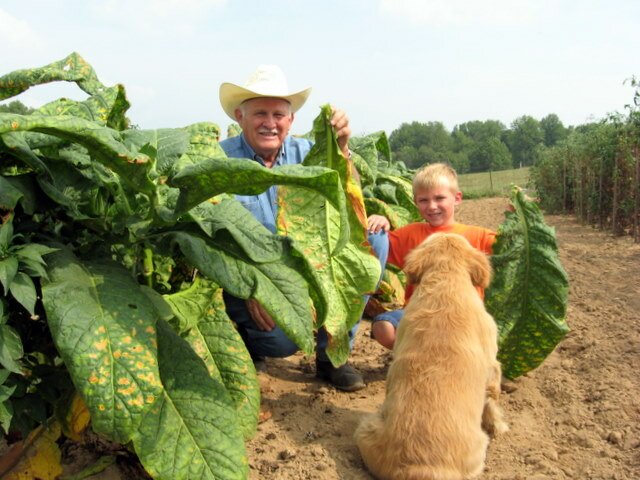May rainfall in Danville has been more than two inches above normal for the month and the extra precipitation is impacting the region’s farmers. The Danville area has been hit with 5.28 inches of rain this month, said Will Perry, meteorologist with the National Weather Service in Blacksburg.
The frequent downpours are affecting the region’s farmers, especially tobacco growers, said Stephen Barts, extension agent with the Virginia Cooperative Extension in Pittsylvania County. The weather has been a hindrance, causing many farmers to stop planting and cultivation, Barts said.
“Typically, by this time, everybody has been done planting and are cultivating for the first time,” Barts said.
Because of rains, only two or three days were suitable for fieldwork last week and the week before, Barts said. Planting season in 2017 was dry, with planting and irrigation of tobacco going on at the same time, Barts said.
Mud makes it impossible for farmers to move their equipment through the field, while planting and cultivating in those conditions make the land “hard as a rock,” Barts said.
“You don’t want to compact it,” he said.
Axton tobacco grower Darrell Jackson said of the weather’s effects on farmers, “It’s tough right now.”
“In Henry County, we’ve been probably wetter than anybody,” said Jackson, who lives about a mile and a half mile west of the Pittsylvania County line. “We’ve had a time.”
Jackson said he has planted about seven acres of his 16-acre tobacco crop. He hopes to plant the remainder Saturday or Sunday.
Jackson said about two inches of rain will fall and then stop, slowing farmers’ operations for four days before another small downpour adds more moisture. Jackson usually finishes planting his tobacco crop by mid-May, but he will be further behind this year if wet weather returns Friday.
“I’d be lucky to get it all planted by the first of June,” Jackson said.
In addition, getting pushed too far behind can put crops in risk of frost damage in the fall, Jackson said.
Another prospect farmers fear during this wet season is the sudden cut-off of rain, Jackson said.
Java farmer Keith Atkinson said he hasn’t had much trouble with heavy rains this year, but would worry if rain doesn’t appear in July or August. Atkinson has experienced frequent showers bringing about a third to a half-inch of accumulation, with no damage to crops.
“It’s been almost ideal for wheat and hay crops,” Atkinson said.
Rainfall has slightly interrupted tobacco planting for Atkinson. He could use another 1/2 day to finish planting the remaining eight acres of his 140-acre crop, which still needs cultivating, he said.
“It’s (rainfall) probably speeding up the tobacco we’ve already planted,” Atkinson said.
If Atkinson continues to get normal rainfall, a frost in the fall won’t be a threat, he said. Last year, drought forced Atkinson to wait until November to pull his tobacco, which he usually pulls by mid-October.
“We’re going to have to work with whatever Mother Nature gives us,” Atkinson said.
